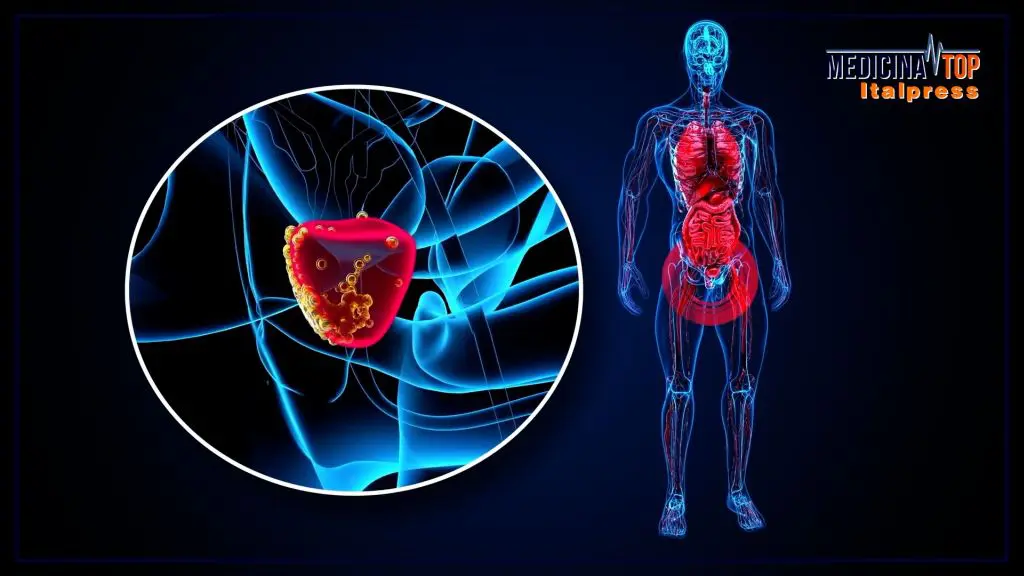MILAN (ITALPRESS) – Prostate cancer is one of the most common cancers in men, with about 40,000 new cases each year in Italy. One of the main risk factors is age. The chances of getting sick are low before the age of 40, but increase significantly after the age of 50 and even more so after that. About two out of three cancers are diagnosed in people older than 65. Treatment of prostate cancer depends on the stage of the tumor, the age of the patient and the patient’s general health. The most common treatment options include surgery, radiation therapy, hormone therapy and chemotherapy. Surgery is one of the most effective treatment modalities, especially when the tumor is localized. These are some of the topics discussed by Aldo Bocciardi, director of the urology department at Niguarda Ca’ Granda Hospital in Milan, interviewed by Marco Klinger, for Medicina Top, a TV format of the Italpress news agency. “The prostate is like a doughnut basically, and it surrounds the neck of the bladder, crossed by the urethra. It’s a bit of an unsympathetic organ, it only serves to make the liquid part of the sperm and has no relation to erectile and sexual activity, although this is often misunderstood,” the professor began. “In severe cases, where there is prostate cancer, the nerves of erection pass near there, so it’s just a consequence of the surgery and not of the fact that there is no prostate anymore. There are two disorders of the prostate, the most serious is prostate cancer and the less serious as well as physiological is benign enlargement: “The former unfortunately gives no signs, but only in very advanced cases,” he stressed, “The latter obstructs the emptying of the bladder and therefore creates a variety of problems, the symptoms, however, must be objective, that is, giving annoyance to the quality of life. Prostate growth is subjective, the average life span has lengthened, and in older age one begins to have discomfort of bladder emptying, such as getting up at night frequently,” Bocciardi added, “If you get up, pee and go back to sleep no problem, if this leads to not sleeping it becomes a problem. “The earlier the diagnosis, the closer we get to 100 percent cure of prostate cancer,” he confirmed, “It is a slow-growing, nonexplosive tumor, and it has several therapeutic solutions, obviously tailored around the patient. These include robotic surgery: “Robotic surgery in urology, particularly for the prostate, has revolutionized surgery and patient outcome,” Bocciardi claimed, “We do not come into contact with the patient but sit at the table, it may seem like science fiction instead it is simple. The machine follows what the surgeon’s movements are, it’s not that the robot operates alone. It brings enormous advantages, especially for prostate cancer,” the professor reiterated, “All it takes is five holes and you remove the prostate. The surgery has radically changed the hospital stay, from 8 to 1/2 days on average, we used to put the catheter for ten days and now we don’t put it, the comfort for the patient is completely different.” Especially worth mentioning is the Retzius-Sparing technique, for which Bocciardi was honored in New York: “It comes from robotic surgery. The traditional choice is to go in front of the bladder to get to the prostate. We came down behind the bladder, operating on the prostate from the ceiling and not from the floor, and by not moving the bladder from its usual position the results are extraordinary,” he recounted. “The recognition is motivated by the fact that American surgeons have begun to approach the prostate from the back and not by passing in front, each with their own techniques. And on the importance of diagnosis: “The quality of life of those who undergo prostate removal at age 60 can change even for the better. The game is played on early diagnosis; it is the key to the possibility of resuming a normal working life in a very few days,” he pointed out. “As soon as you perceive any discomfort, the sooner you get checked by the urologist, the better. It is important to have a blood test every year, it is not true that you don’t need it, it is not the absolute value that counts but the trend over time. There is no prevention on prostate cancer,” the professor commented, “Beer with age makes the adenoma grow, spicy foods are not good for you and irritate the prostate. Urination disorders must bother the quality of life. Physical activity increases the blood supply to all pelvic vessels and is very good for you, then among the advice is not to sit too much, but these are things that are only feasible for some people. The bicycle? The saddle is irritating, it goes and hits right there.” Finally, on what is expected in the immediate future: “One thing we are waiting for is diagnostics to avoid prostate biopsy, as in kidney cancer where a CT scan is enough,” he concluded, “Then will come, but it is already there, artificial intelligence.
– photo taken from Top Medicine video -(ITALPRESS).

